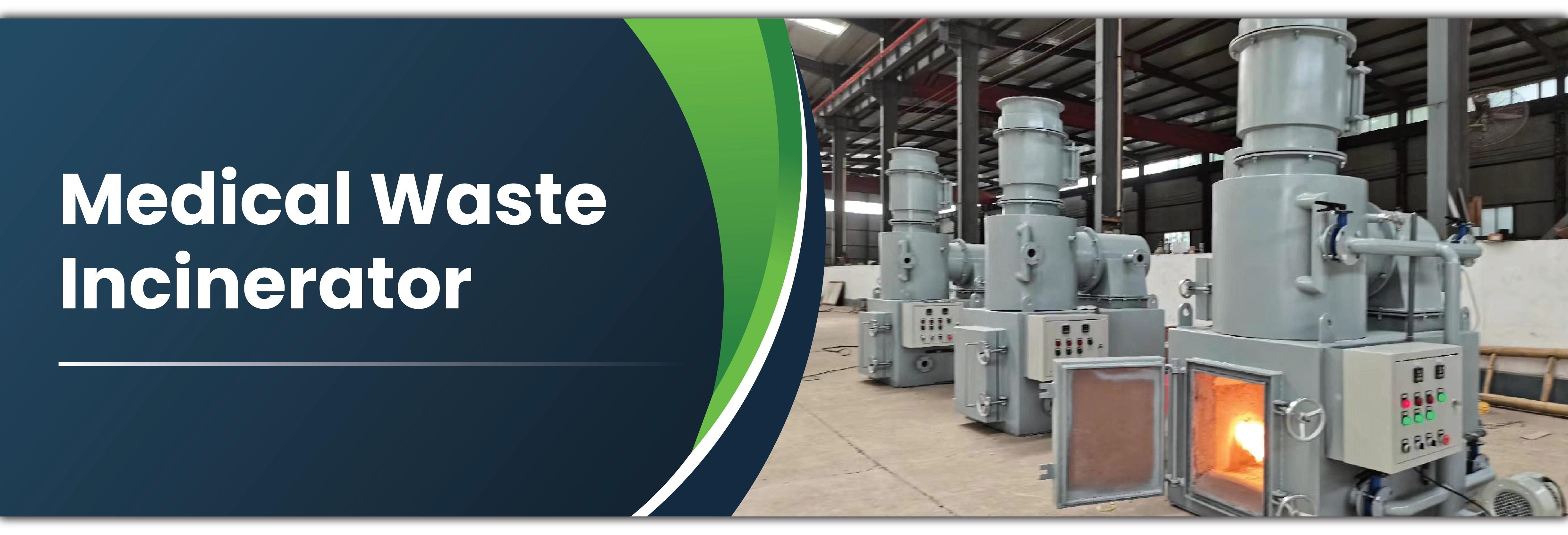Medical Waste Incinerator
Our Medical Waste Incinerator is the ultimate solution for hospitals, veterinary facilities, and medical research centers to dispose of infectious and non-infectious wastes in a safe, efficient and environmentally responsible manner. With our incinerator, you can rest assured that your facility will meet all regulatory requirements while protecting public health. Trust us to be your partner in creating a clean and healthy environment for everyone.
We help dispose of the nearly 2 million tons of medical waste generated each year in high-level, cost-effective, and efficient process.
- Safely and Securely Dispose of Medical Waste with the Kelvin Incinerator
- Incinerator with cyclone separator
- Incinerator with inbuilt scrubber
- Rotary Kiln Incinerator
- Incinerator with 3 stage scrubbers
- Incinerator with 2 stage scrubbers.
- Incinerator with venturi scrubber
Call/Mail Us to Get Quote
or Consultation.
How Medical Waste Incineration Helps Hospitals and Clinics Save Money and Resources
The use of an incinerator to dispose of medical waste is becoming increasingly popular among hospitals and clinics. This is due to the many benefits that it offers in terms of saving money and resources.
Money Saving - Incineration is a very efficient way of disposing of medical waste. It destroys all types of waste, including pathogens, making it safe for disposal. This means that there is no need for specialized disposal methods or facilities, which can save hospitals and clinics a considerable amount of money.
Space Saving - In addition, incineration reduces the volume of medical waste by up to 90%, meaning that less space is required for storage and transport. This can free up valuable resources within a hospital or clinic, as well as reducing environmental impacts.
Overall, the use of an incinerator can provide significant financial and resource savings for hospitals and clinics. It is an increasingly popular choice for waste disposal, due to its many benefits.
Pros of Kelvin Medical Waste Incinerator are:-
- Efficient waste disposal
- Safe for disposal
- Free up resources
- Efficiently destroys all types of waste
- Pathogens are eliminated.
- Can save hospitals and clinics money.
- Reduces the volume of medical waste
- Minimizes environmental impacts
We design Medical Waste Incinerator which meets standards set by PCB & CPCB. General standards are: -

“Make sure that you have your medical waste incinerator in place, so that you can dispose of your biomedical disposables and pharmaceuticals.”
FAQs - Medical Waste Incinerator
Q1. Why does medical waste need to be incinerated?
Ans. Due to the possibility of contagious diseases spreading, medical and hospital waste is regarded as a biohazard. If the situation spirals out of control, it might become a serious incident that poses hazards to the environment and public health, especially in urban areas. Because of this, it is crucial to manage medical waste, and hospitals oversee doing so because they have established procedures for sorting various forms of trash. Waste separation is crucial because various waste kinds require various approaches to treatment. For example, greater temperatures are needed to assure complete destruction of pharmaceutical waste.
Incinerators for medical waste often run at higher temperatures (900 to 1200°C). Controlled air incineration is the most widely used incineration method for medical waste. The gaseous material is cleaned in the incinerator's air pollution control system before being released into the atmosphere.
Q2. How is medical waste disposed using a medical waste incinerator?
Ans. Medical/hospital trash should be disposed of using incinerators. Incineration plants are built to safely dispose of hazardous chemicals emitted by hospitals, clinics, and dentistry businesses. The basic procedure entails introducing garbage to the primary chamber. The toxic gases are subsequently sent via the secondary chamber and a variety of pollution control equipment. No toxic gases are discharged into the environment because of the entire operation.
Q3. What are the benefits of medical waste incinerator?
Ans. The following are some of the most prevalent advantages of a medical waste incinerator:
- Total waste annihilation Incineration is extremely useful for eliminating medical waste. By totally eradicating the garbage, the waste management process becomes much easier and more effective.
- Volume loss at high temperatures and ash formation Medical incinerators are specifically built to properly dispose of hazardous items at high temperatures. No hazardous gases are emitted into the environment because of this technique.
- Scrubbers are used in incinerators to clear the polluting gases. Scrubbers are used in medical waste incinerators to clear contaminated gases and other particulate debris.
- Pollutants are trapped by filters in incinerators. Filters are used in incinerator plants to catch pollutants, reducing the emission of dangerous substances.
Q4. How does an incinerator work?
Ans. Incineration is a procedure that uses extremely high temperatures to convert organic and combustible waste to inorganic and non-flammable stuff, resulting in a significant reduction in the overall volume and weight of this garbage. This is especially useful for non-recyclable and non- reusable garbage.
Organic compound combustion generates mostly gaseous emissions, hazardous substances (e.g., metals, halogenic acids), and particulate debris, as well as solid residues in the form of ashes. Toxic substances are also included in the ash and wastewater produced by the process, which must be handled to minimise negative impacts on health and the environment.
Q5. Why Medical Waste Management is necessary?
Ans. Waste management and reconditioning for all garbage generated in health care facilities is a crucial activity that contributes to global cleanliness, public health, resource preservation, and ecosystem sustainability.
Medical waste recycling minimises raw material consumption as well as the amount of solid trash that must be disposed of in a landfill. It decreases the dangers and threats to communities that may be posed by hospitals.
Proper waste management also prevents the transmission of infectious medical equipment-borne diseases such as HIV/AIDS, hepatitis, and others. Appropriate management measures can aid in the prevention of illegal syringe, injection needle, and medical instrument trading.
For a non-toxic and vibrant future, awareness of the dangers of medical waste and its safe disposal is necessary.










